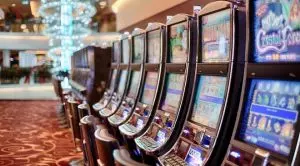 The British Horseracing Authority (BHA) has warned the UK Government about the effects that crackdown on fixed-odds betting terminals (FOBTs) could inflict to UK racing industry and wider economy. The Authority made a submission to the consultation on betting-shop gaming machines started by the Government several months ago.
The British Horseracing Authority (BHA) has warned the UK Government about the effects that crackdown on fixed-odds betting terminals (FOBTs) could inflict to UK racing industry and wider economy. The Authority made a submission to the consultation on betting-shop gaming machines started by the Government several months ago.
Yesterday, a spokesman for the regulatory authority for horse racing in the UK commented on the possibility of the maximum stake allowed at fixed-odds betting machines to be slashed from £100 to £2 under the new Culture Secretary Matthew Hancock. Making a commentary on the matter was considered quite an unusual step for the BHA, because the consultation period was not through at the time.
Reportedly, a few days ago a person close to the Department for Culture, Media and Sport revealed that no official decision on the FOBTs crackdown has been made, but the maximum stake allowed at the machines could be reduced to £2. As Casino Guardian reported earlier, the appointment of Matthew Hancock at the position of the Department for Digital, Culture, Media and Sport’s Secretary was considered to may turn out to be beneficial for the sports betting industry of the UK.
Bookmakers Say FOBTs Crackdown Would Be Devastating
 Now, the British Horseracing Authority raised a red flag that cutting the maximum stake of the fixed-odds betting terminals could have massive impact not only on the racing industry of the country, but also on its economy as a whole.
Now, the British Horseracing Authority raised a red flag that cutting the maximum stake of the fixed-odds betting terminals could have massive impact not only on the racing industry of the country, but also on its economy as a whole.
The Executive Director of the BHA, Will Lambe, explained that the Authority’s submission in response to the possible effects of the FOBTs crackdown would highlight the fact that racing remains committed to social responsibility and making contributions to the country’s economy. Mr. Lambe further shared that any measures that could put the financial stability of local sports in danger, would undoubtedly influence on the racing industry, the betting sector and the British economy as a whole.
The controversial machines provide local bookmakers with the opportunity to offer British players various fixed-margin games which were once illegal in casinos. The terminals, however, raised a wave of controversy across the industry, as both some country’s regulatory authorities and charity organisation shared their concern with the possible negative impact such betting could have on players’ lives. Since 2005, when fixed-odds betting machines were made officially legal in the UK under the provisions of the 2005 Gambling Act, they have been vastly criticised.
For the time being, there are approximately 9,000 betting shops on the territory of the UK, with each shop allowed to offer up to four fixed-odds betting terminals. Reportedly, such machines generate an average profit of a little less than £1,000 on a weekly basis. FOBTs account for about £1.7 billion generated in the industry every year.
Most betting shops in the UK are currently owned by three operators, including William Hill, Ladbrokes Coral and BetFred. According to the three companies’ chief executives, the rumoured reduction of the FOBTs’ maximum stake from £100 to £2 would greatly hurt the operators, which would be probably forced to close a large number of high-street betting outlets that would result in industry-wide lay-offs.
- Author


